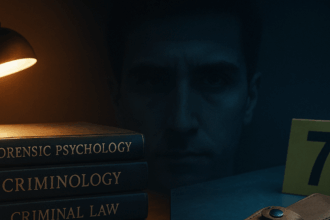The 2022 Industry Trends report, a study commissioned by Cellebrite, reveals that most law enforcement agencies and prosecutors believe that digital evidence
 DNA, or Deoxyribonucleic Acid, is the genetic material found in cells, composed of a double helix structure. It serves as the genetic blueprint for all living organisms. Read Full Definition in successfully prosecuting cases.
DNA, or Deoxyribonucleic Acid, is the genetic material found in cells, composed of a double helix structure. It serves as the genetic blueprint for all living organisms. Read Full Definition in successfully prosecuting cases.
The data Information in analog or digital form that can be transmitted or processed. Read Full Definition, gathered from over 2,000 chiefs of police, agency managers, examiners, investigators, and prosecutors, illustrates the extent to which digital evidence sources – including smartphones, laptops, social media, opensource, cryptocurrency, CCTV, vehicles and drones – are creating enhanced challenges for law enforcement.
Information in analog or digital form that can be transmitted or processed. Read Full Definition, gathered from over 2,000 chiefs of police, agency managers, examiners, investigators, and prosecutors, illustrates the extent to which digital evidence sources – including smartphones, laptops, social media, opensource, cryptocurrency, CCTV, vehicles and drones – are creating enhanced challenges for law enforcement.
The study’s findings reinforce the need for law enforcement agencies across the world to invest in digital forensics trainings or existing staff, recruit more technology expertise into their teams and partner with software providers than can help them manage digital evidence more efficiently.
Below are some of the study’s key findings:
- 74 percent of agency managers agree that there is a growing technology skills gap in policing, making it even tougher for police forces to collect, manage, analyse, store and use the digital evidence required to secure court judgements.
- 48 percent of police chiefs and agency managers believe that their digital transformation strategy is poor or mediocre.
- 66 percent of respondents agree digital evidence has overtaken physical evidence – including laptops, mobiles, thumb drives, CCTV – in its significance to solving cases.
- 51 percent of examiners agree that the backlog of devices that need evidence extraction has increased in the last year.
- The average number of days it takes for investigators to receive an extraction report has leapt from six days to nine days in the last year.
“Access to digital evidence is vitally important to resolve cases more quickly, and the data from this survey is proof positive of this fact. As digital evidence grows in volume and breadth, investigators, analysts and prosecutors need accurate data to accelerate the time to justice, and Cellebrite offers solutions to achieve this goal,” said Detective Sargent Chris Collins of the Lake Jackson Police Department.
“There is a common misconception amongst the public that gathering evidence to prosecute crimes is all about plastic bags, fingerprintsFingerprint, impression made by the papillary ridges on the ends of the fingers and thumbs. Fingerprints afford an infallible means of personal identification, because the ridge arrangement on every finger of every human being is Read Full Definition and DNA swabs. This is an arcane view of the policing world – informed by movies and TV shows – and one that fundamentally ignores the massive, growing role that digital evidence plays,” said Leeor Ben-Peretz, Chief Strategy Officer at Cellebrit.
Cellebrite’s 4th annual Industry Trends Survey provides an in-depth look at the trends affecting and defining how global law enforcement agencies, military organizations, and the intelligence community are operating today.
Based on 2,000 responses from law enforcement professionals in 119 countries, the 2022 Industry Trends Survey provides a snapshot of how agencies are coping with wide-ranging challenges. To view the 2022 Cellebrite Industry Trends report, please visit here.











